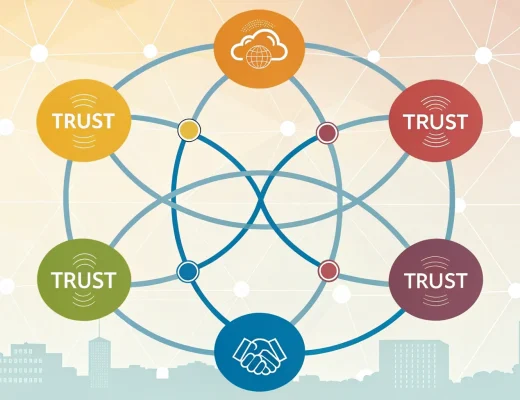Buying a car in Florida can be an exciting milestone, but it’s also a financial trap for the unprepared. The Sunshine State has its own set of rules, dealership practices, and legal nuances that can catch buyers off guard. If you’re not careful, a simple oversight can cost you thousands of dollars. Before you sign any paperwork, here’s what
every Florida car buyer needs to know to protect their wallet and make an informed purchase.
Know Your Budget — And Stick to It
Before you even set foot on a dealership lot or browse listings online, you
need to know exactly how much you can afford. It’s not just about the sticker price. Think long-term. Include the down payment, monthly loan payments, insurance premiums, taxes, registration fees, and ongoing maintenance. Florida’s heat, humidity, and hurricane risk can also impact upkeep costs.
Additionally, consider the
cost of car insurance in Florida, which can vary significantly based on your vehicle type, location, and driving history. Getting pre-approved for an auto loan is one of the smartest moves you can make. It shows you what interest rate you qualify for and helps you avoid expensive in-house dealer financing. A clear budget keeps you grounded and gives you stronger negotiating power.
Understand Florida’s “As-Is” Law
Florida’s car market operates under an “As-Is” provision for most used vehicle sales. That means once you buy the car, any problems that arise are officially your responsibility—unless the dealer made specific written promises otherwise. This law gives sellers the upper hand.
That’s why a pre-purchase inspection is non-negotiable.
Hire a trusted mechanic to inspect the vehicle before signing anything. It may cost you $100–$200 upfront, but it can
save you thousands in surprise repairs down the road. If the seller resists the idea, consider it a red flag and walk away.
Research the Vehicle’s History
Not all damage is visible. In Florida, where flooding and hurricanes are frequent, water-damaged vehicles are a common occurrence. Many end up on the used car market with washed titles or cosmetic clean-ups.
Always run a Vehicle Identification Number (VIN) check through trusted sources, such as Carfax, AutoCheck, or the National Motor Vehicle Title Information System (NMVTIS). Look for red flags: salvage titles, odometer rollbacks, or repeated ownership changes in a short period.
Even if the car appears to be in good shape, a clean title doesn’t always mean it’s problem-free.
Watch for Hidden Fees and Dealer Add-Ons
You might have found a great price—until you get to the final paperwork. That’s when the dealer may add extras that dramatically inflate the cost. Standard hidden fees include dealer fees, electronic filing fees, document preparation charges, and mandatory “add-ons” like nitrogen-filled tires or paint protection.
Some fees are legitimate; others are pure markup. Don’t hesitate to ask for a line-by-line breakdown of charges.
Florida law requires that dealer fees be disclosed upfront, but that doesn’t mean they’re not negotiable. If something looks questionable, challenge it.
Read the Fine Print of the Contract
It’s easy to get swept up in the excitement of a purchase, but this is the moment to slow down. Take your time reviewing every word of the sales contract. Contracts in Florida may include clauses that limit your rights, like binding arbitration or non-refundable deposits.
Clarify whether you’re signing a purchase agreement or a finance agreement. These documents carry different obligations. If you’re unsure about anything, take the paperwork home and consider it overnight. A reputable dealer will respect your caution. If they rush you, that’s a red flag.
Beware of “Spot Delivery” or Yo-Yo Financing Scams
Spot delivery, or “Yo-Yo financing,” is a tactic where a dealer lets you drive off in a car before financing is finalized. Days or weeks later, they call you back saying your financing fell through—and now you’re stuck renegotiating under worse terms.
This practice is hazardous in Florida. Always insist on final loan approval before taking delivery. Never sign a “conditional delivery” agreement unless you’re 100% clear on the terms. If a dealer uses this tactic, report it to the Florida Department of Highway Safety and Motor Vehicles.
Know Your Rights Under Florida Lemon Laws
Florida has a
Lemon Law, but it only applies under specific conditions and generally covers new vehicles. If a car has severe defects that can’t be fixed after several attempts, you may qualify for a refund or replacement.
The law typically covers problems that arise within the first 24 months of ownership. To make a claim, you must keep detailed records of repair visits and notifications to the manufacturer. Used vehicles aren’t usually protected unless they come with a written warranty.
For more guidance, visit the Florida Attorney General’s Lemon Law website or call their consumer hotline.
Consider Buying from a Reputable Seller
A certified pre-owned (CPO) vehicle from a well-known dealership may cost more upfront, but the peace of mind is often worth it. CPO cars are typically inspected, refurbished, and come with extended warranties.
Whether you’re buying from a dealer or a private seller, do your homework. Check reviews,
ask for references, and research their Better Business Bureau (BBB) rating. Be especially cautious with smaller lots or classified ads offering deals that seem too good to be true.
Get Everything in Writing
Verbal promises don’t hold up in court. If the dealer says the car has a clean history, get it in writing. If they promise to fix something after purchase, make sure it’s written into the contract. Never rely on goodwill alone.
Keep copies of everything: the purchase agreement, the bill of sale, financing documents, service history, and title paperwork. These documents can protect you in case of disputes or if legal action is ever needed.
Conclusion: Buy With Confidence, Not Regret
The car market in Florida doesn’t have to be stressful, but it does require caution. The more informed you are, the less likely you are to fall for hidden fees, bad deals, or legal loopholes.
Slow down. Ask questions. Read everything. And if something doesn’t feel right, trust your gut and walk away. Your wallet—and your peace of mind—will thank you.
Photo by Meriç Dağlı; Unsplash







